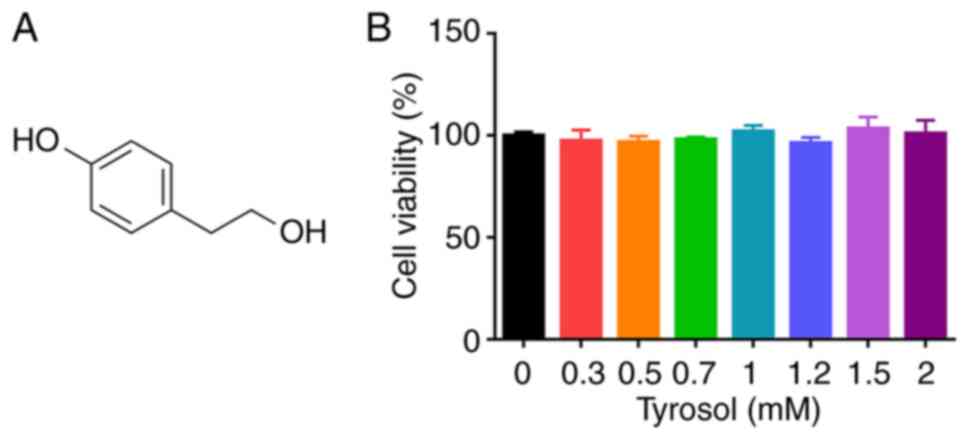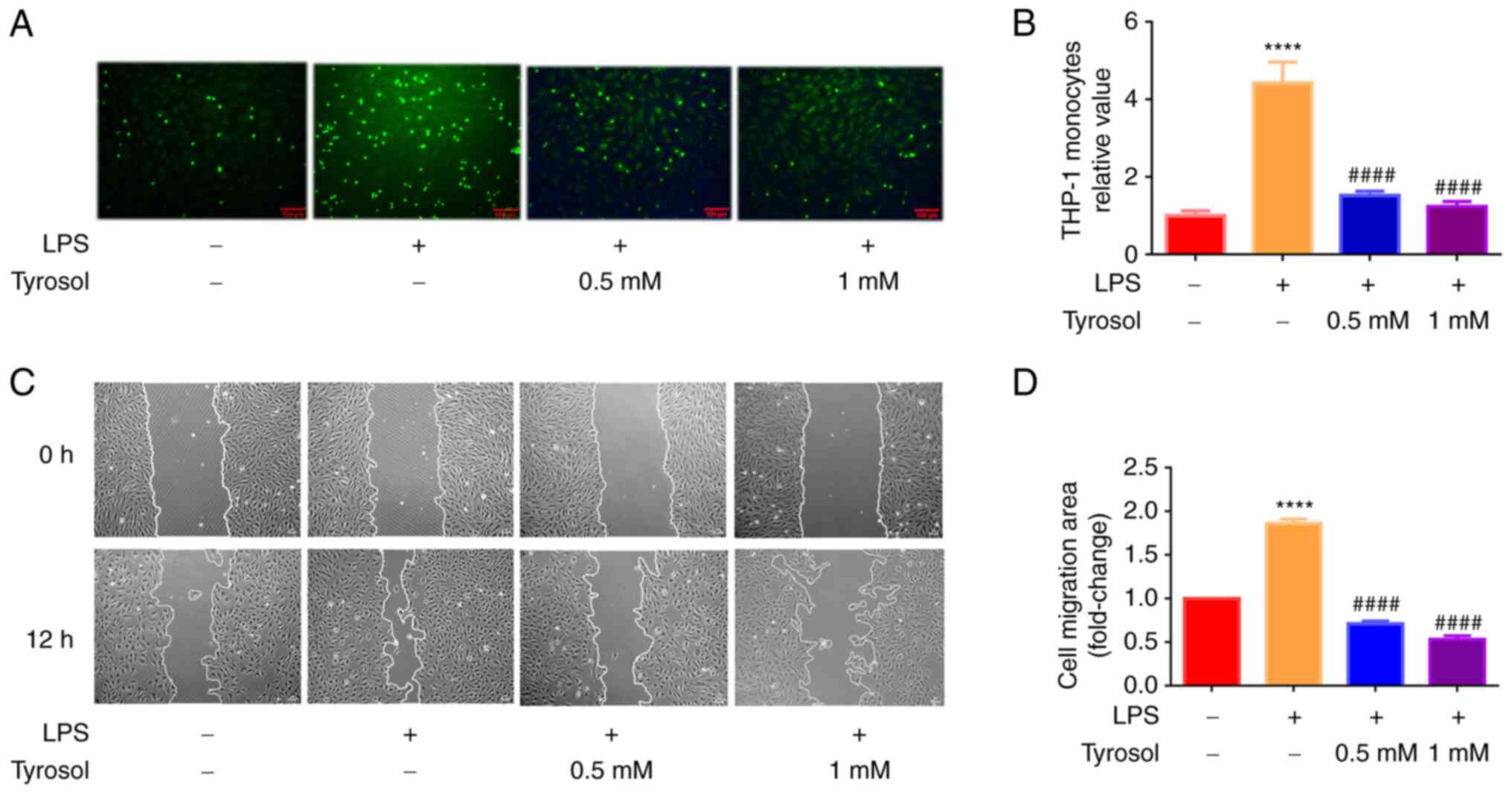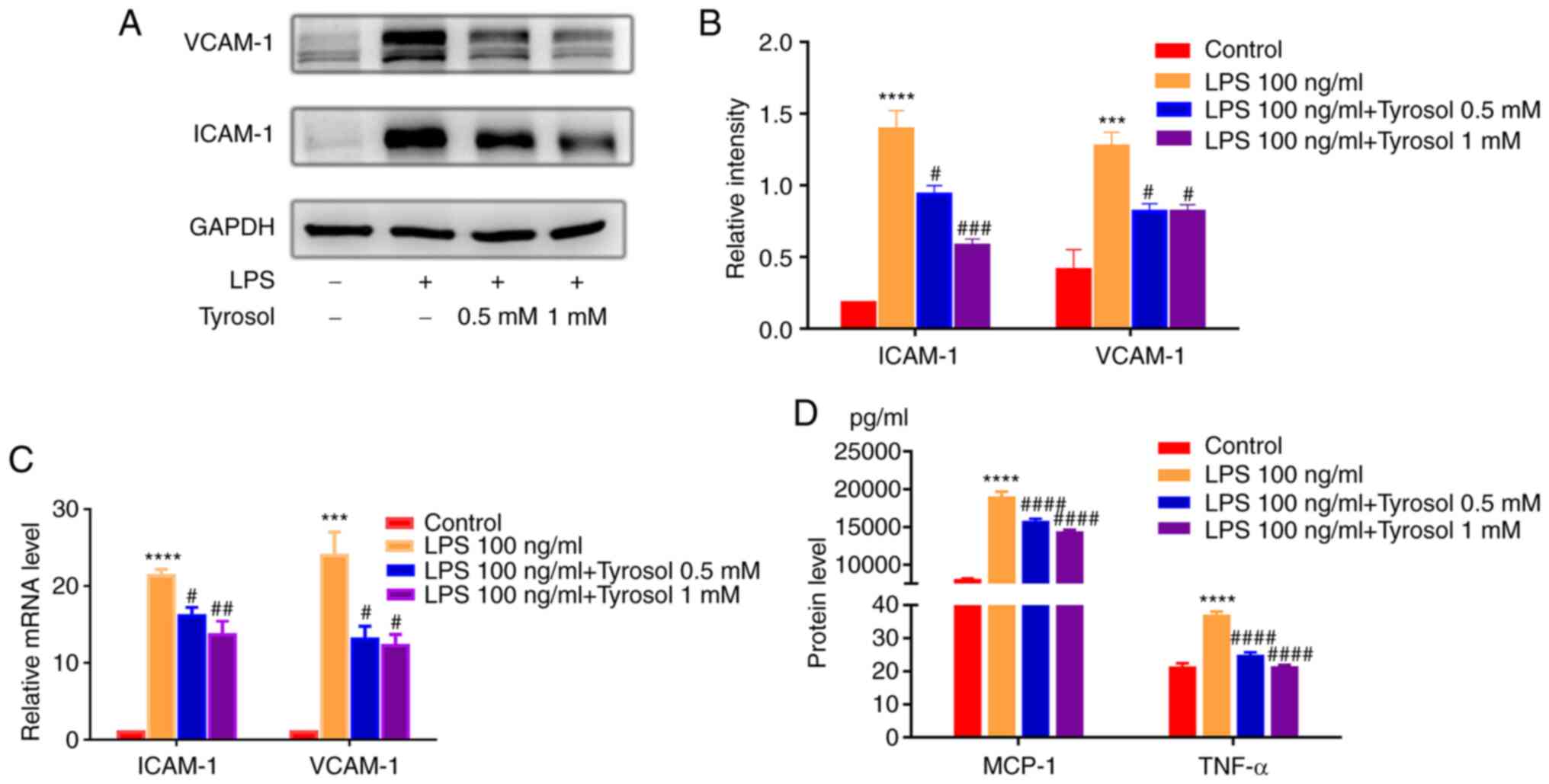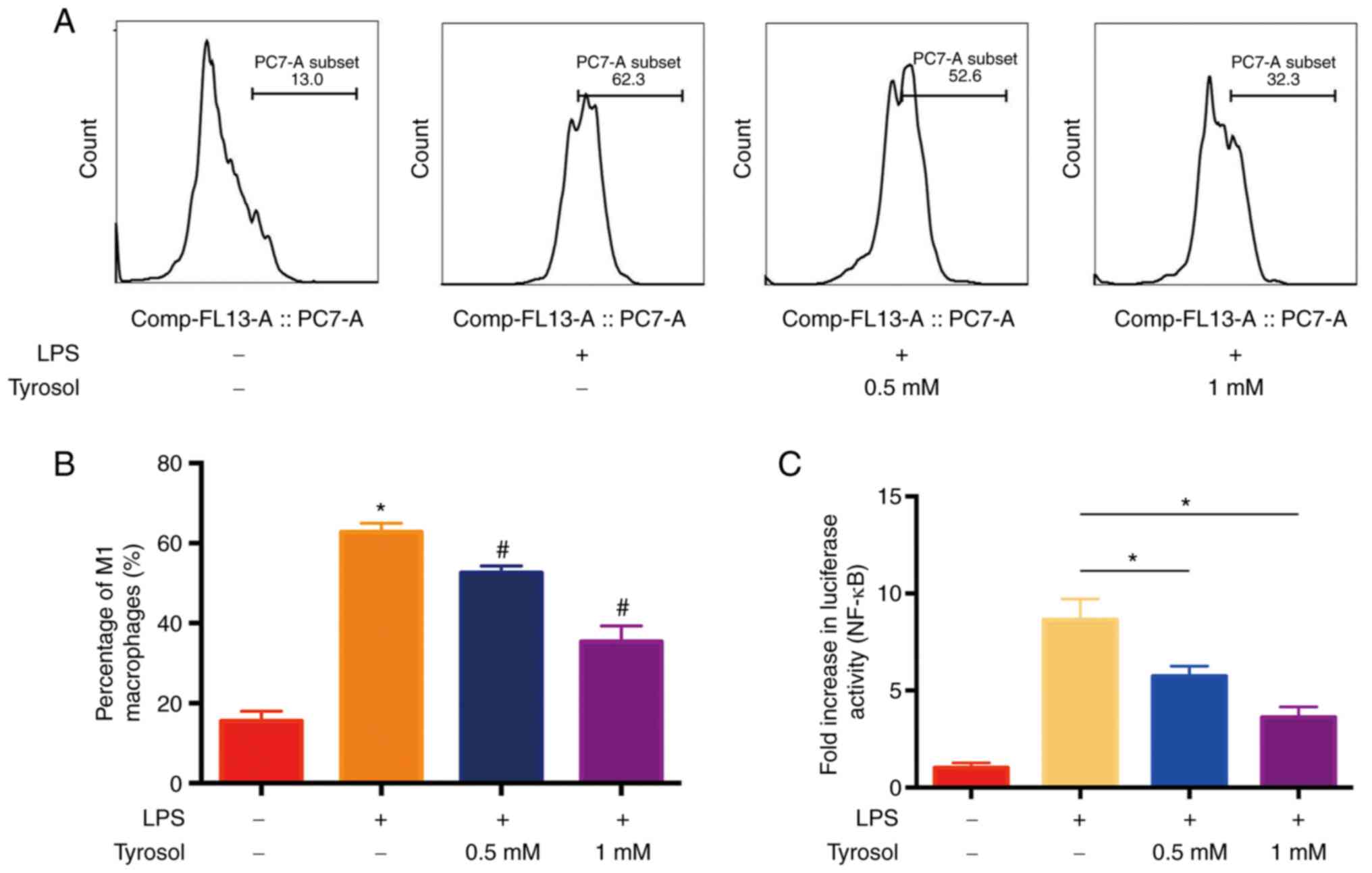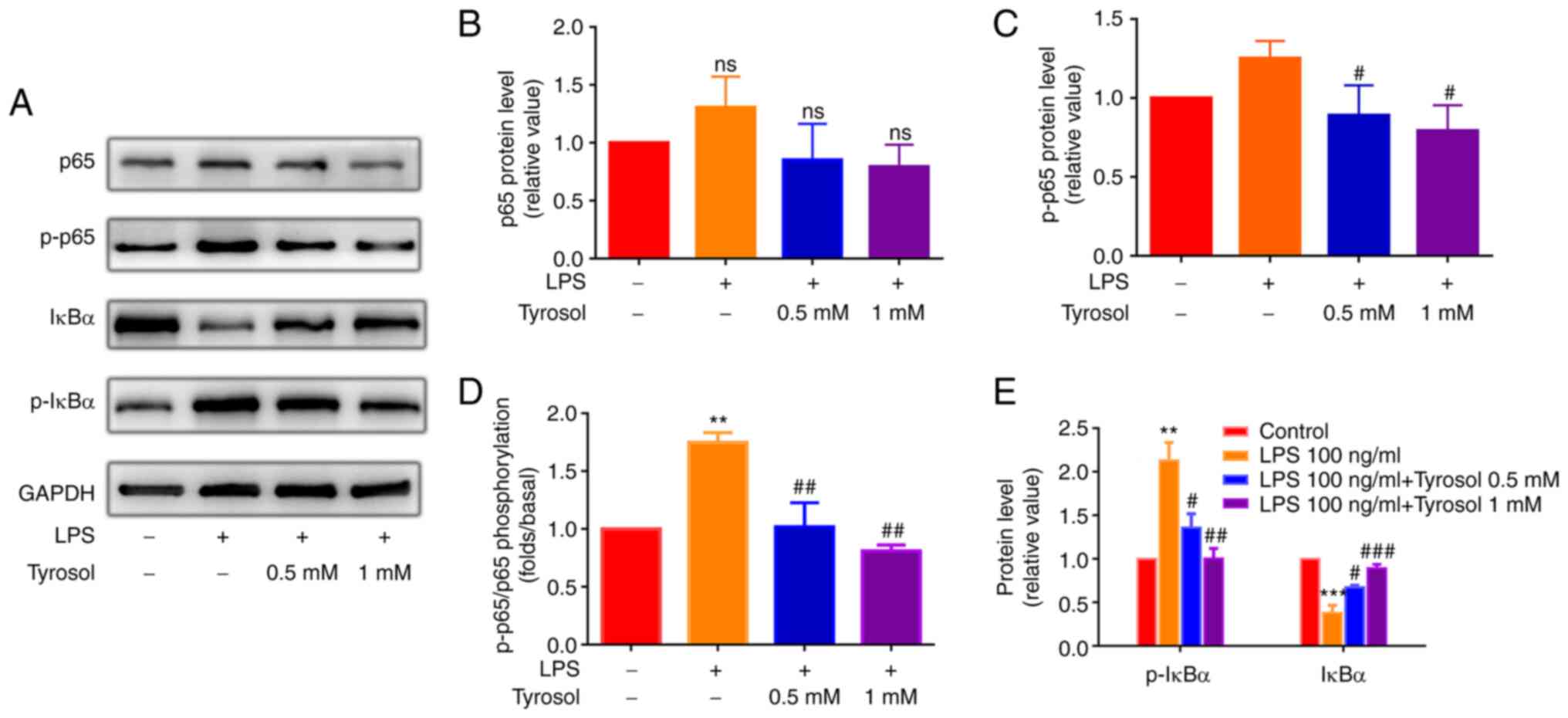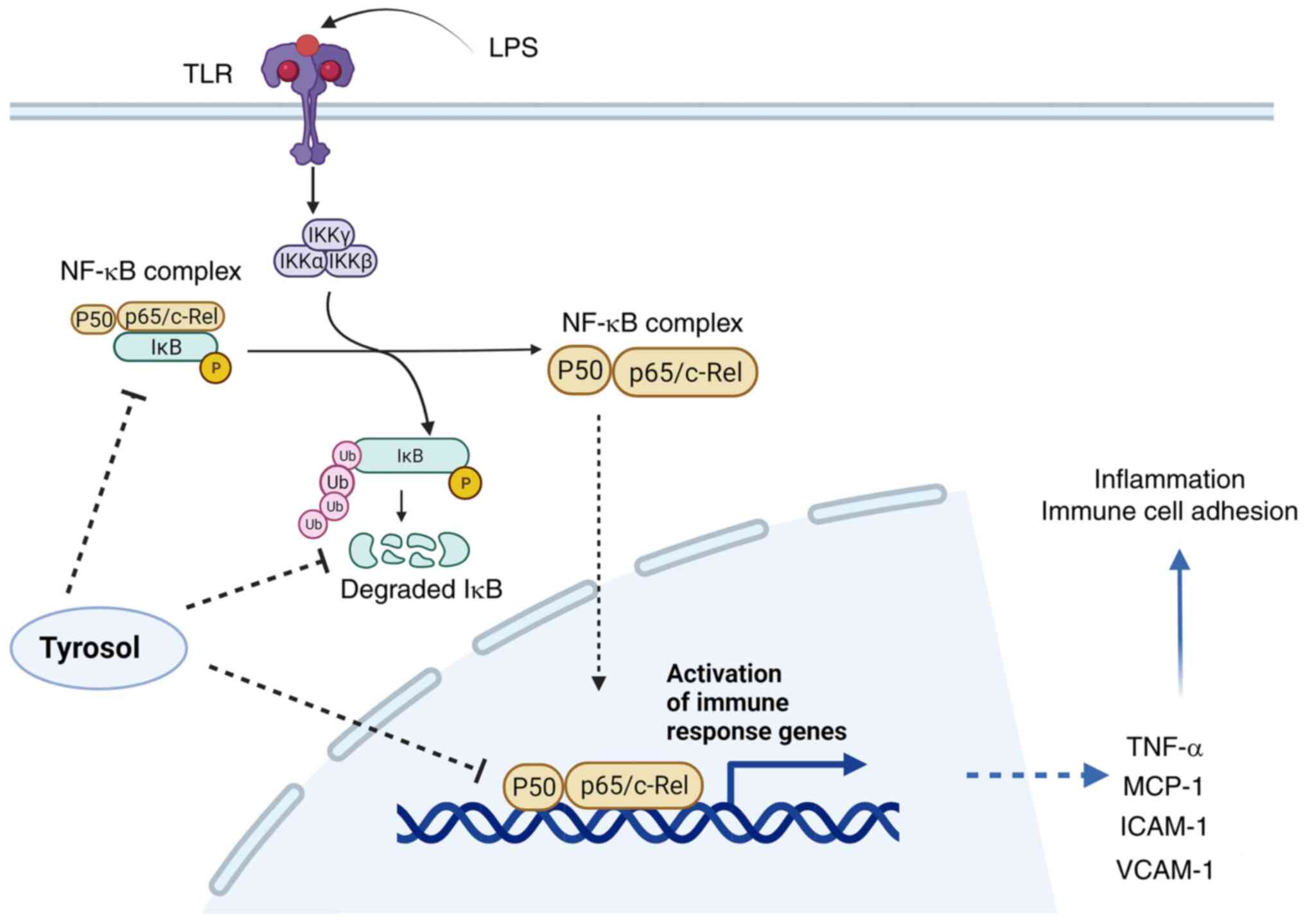|
1
|
Kobiyama K and Ley K: Atherosclerosis.
Circ Res. 123:1118–1120. 2018.PubMed/NCBI View Article : Google Scholar
|
|
2
|
Wolf D and Ley K: Immunity and
inflammation in atherosclerosis. Circ Res. 124:315–327.
2019.PubMed/NCBI View Article : Google Scholar
|
|
3
|
Oates JC: Endothelial dysfunction in
injury and inflammation. Am J Med Sci. 349(2)2015.PubMed/NCBI View Article : Google Scholar
|
|
4
|
Tabas I and Bornfeldt KE: Macrophage
phenotype and function in different stages of atherosclerosis. Circ
Res. 118:653–667. 2016.PubMed/NCBI View Article : Google Scholar
|
|
5
|
Moreira DM, da Silva RL, Vieira JL, Fattah
T, Lueneberg ME and Gottschall CA: Role of vascular inflammation in
coronary artery disease: Potential of anti-inflammatory drugs in
the prevention of atherothrombosis. Inflammation and
anti-inflammatory drugs in coronary artery disease. Am J Cardiovasc
Drugs. 15:1–11. 2015.PubMed/NCBI View Article : Google Scholar
|
|
6
|
van Bussel BC, Henry RM, Ferreira I, van
Greevenbroek MM, van der Kallen CJ, Twisk JW, Feskens EJ,
Schalkwijk CG and Stehouwer CD: A healthy diet is associated with
less endothelial dysfunction and less low-grade inflammation over a
7-year period in adults at risk of cardiovascular disease. J Nutr.
145:532–540. 2015.PubMed/NCBI View Article : Google Scholar
|
|
7
|
Wu C, Zhao W, Zhang X and Chen X:
Neocryptotanshinone inhibits lipopolysaccharide-induced
inflammation in RAW264.7 macrophages by suppression of NF-κB and
iNOS signaling pathways. Acta Pharm Sin B. 5:323–329.
2015.PubMed/NCBI View Article : Google Scholar
|
|
8
|
Yang L, Guo H, Li Y, Meng X, Yan L, Zhang
D, Wu S, Zhou H, Peng L, Xie Q and Jin X: Oleoylethanolamide exerts
anti-inflammatory effects on LPS-induced THP-1 cells by enhancing
PPARα signaling and inhibiting the NF-κB and ERK1/2/AP-1/STAT3
pathways. Sci Rep. 6(34611)2016.PubMed/NCBI View Article : Google Scholar
|
|
9
|
De Martin R, Hoeth M, Hofer-Warbinek R and
Schmid JA: The transcription factor NF-kappa B and the regulation
of vascular cell function. Arterioscler Thromb Vasc Biol.
20:E83–E88. 2000.PubMed/NCBI View Article : Google Scholar
|
|
10
|
Kris-Etherton P, Eckel RH, Howard BV, St
Jeor S and Bazzarre TL: Nutrition Committee Population Science
Committee and Clinical Science Committee of the American Heart
Association. AHA science advisory: Lyon diet heart study. Benefits
of a mediterranean-style, national cholesterol education
program/American heart association step I dietary pattern on
cardiovascular disease. Circulation. 103:1823–1825. 2001.PubMed/NCBI View Article : Google Scholar
|
|
11
|
Nocella C, Cammisotto V, Fianchini L,
D'Amico A, Novo M, Castellani V, Stefanini L, Violi F and Carnevale
R: Extra virgin olive oil and cardiovascular diseases: Benefits for
human health. Endocr Metab Immune Disord Drug Targets. 18:4–13.
2018.PubMed/NCBI View Article : Google Scholar
|
|
12
|
Mateos R, Sarria B and Bravo L:
Nutritional and other health properties of olive pomace oil. Crit
Rev Food Sci Nutr. 60:3506–3521. 2020.PubMed/NCBI View Article : Google Scholar
|
|
13
|
Cui J, Guo T, Chao J, Wang M and Wang J:
Potential of the endophytic fungus phialocephala fortinii Rac56
found in rhodiola plants to produce salidroside and p-tyrosol.
Molecules. 21(502)2016.PubMed/NCBI View Article : Google Scholar
|
|
14
|
Kim YY, Lee S, Kim MJ, Kang BC, Dhakal H,
Choi YA, Park PH, Choi H, Shin TY, Choi HG, et al: Tyrosol
attenuates lipopolysaccharide-induced acute lung injury by
inhibiting the inflammatory response and maintaining the alveolar
capillary barrier. Food Chem Toxicol. 109:526–533. 2017.PubMed/NCBI View Article : Google Scholar
|
|
15
|
Zhao S, Liang M, Wang Y, Hu J, Zhong Y, Li
J, Huang K and Li Y: Chrysin suppresses vascular endothelial
inflammation via inhibiting the NF-κB signaling pathway. J
Cardiovasc Pharmacol Ther. 24:278–287. 2019.PubMed/NCBI View Article : Google Scholar
|
|
16
|
Livak KJ and Schmittgen TD: Analysis of
relative gene expression data using real-time quantitative PCR and
the 2(-Delta Delta C(T)) method. Methods. 25:402–408.
2001.PubMed/NCBI View Article : Google Scholar
|
|
17
|
Leuenberger PM: Ultrastructure of the
ageing retinal vascular system, with special reference to
quantitative and qualitative changes of capillary basement
membranes. Gerontologia. 19:1–15. 1973.PubMed/NCBI View Article : Google Scholar
|
|
18
|
Gimbrone MA Jr and García-Cardeña G:
Endothelial cell dysfunction and the pathobiology of
atherosclerosis. Circ Res. 118:620–636. 2016.PubMed/NCBI View Article : Google Scholar
|
|
19
|
Gimbrone MA Jr, Obin MS, Brock AF, Luis
EA, Hass PE, Hébert CA, Yip YK, Leung DW, Lowe DG, Kohr WJ, et al:
Endothelial interleukin-8: A novel inhibitor of
leukocyte-endothelial interactions. Science. 246:1601–1603.
1989.PubMed/NCBI View Article : Google Scholar
|
|
20
|
Olszak IT, Poznansky MC, Evans RH, Olson
D, Kos C, Pollak MR, Brown EM and Scadden DT: Extracellular calcium
elicits a chemokinetic response from monocytes in vitro and in
vivo. J Clin Invest. 105:1299–1305. 2000.PubMed/NCBI View
Article : Google Scholar
|
|
21
|
Fernandez DM and Giannarelli C: Immune
cell profiling in atherosclerosis: Role in research and precision
medicine. Nat Rev Cardiol. 19:43–58. 2022.PubMed/NCBI View Article : Google Scholar
|
|
22
|
Baker RG, Hayden MS and Ghosh S: NF-κB,
inflammation and metabolic disease. Cell Metab. 13:11–22.
2011.PubMed/NCBI View Article : Google Scholar
|
|
23
|
Brown JD, Lin CY, Duan Q, Griffin G,
Federation A, Paranal RM, Bair S, Newton G, Lichtman A, Kung A, et
al: NF-κB directs dynamic super enhancer formation in inflammation
and atherogenesis. Mol Cell. 56:219–231. 2014.PubMed/NCBI View Article : Google Scholar
|
|
24
|
Wang W, Deng M, Liu X, Ai W, Tang Q and Hu
J: TLR4 activation induces nontolerant inflammatory response in
endothelial cells. Inflammation. 34:509–518. 2011.PubMed/NCBI View Article : Google Scholar
|
|
25
|
Karunakaran D, Nguyen MA, Geoffrion M,
Vreeken D, Lister Z, Cheng HS, Otte N, Essebier P, Wyatt H, Kandiah
JW, et al: RIPK1 Expression associates with inflammation in early
atherosclerosis in humans and can be therapeutically silenced to
reduce NF-κB activation and atherogenesis in mice. Circulation.
143:163–177. 2021.PubMed/NCBI View Article : Google Scholar
|
|
26
|
Gilmore TD and Wolenski FS: NF-κB: Where
did it come from and why? Immunol Rev. 246:14–35. 2012.PubMed/NCBI View Article : Google Scholar
|















